Share this article

Garry Tan of YC: Why the next unicorns are built by AI | Frameworks for Growth
Accelerating security solutions for small businesses Tagore offers strategic services to small businesses. | A partnership that can scale Tagore prioritized finding a managed compliance partner with an established product, dedicated support team, and rapid release rate. | Standing out from competitors Tagore's partnership with Vanta enhances its strategic focus and deepens client value, creating differentiation in a competitive market. |
🔔 Subscribe for more startup strategy and founder stories: YouTube
👉 Follow us on all social media platforms: LinkedIn, X, Instagram, and TikTok
🎧 Follow Frameworks for Growth on Spotify and Apple Podcasts
In this episode
Vanta CEO Christina Cacioppo sits down with Garry Tan, President and CEO of Y Combinator, to explore how early-stage startups can find product-market fit in an AI age, when a startup idea is worth pursuing, and what it means to operate in “founder mode.”
Whether you're a founder, operator, or investor, this episode offers actionable startup advice and insight from one of the most influential voices in tech.
🔑 Topics covered (timestamps):
00:11 - Introduction
00:35 - What’s different about today’s tech landscape
02:15 - What does YC try to impress upon their founders
03:41 - Are there more pivots in YC
06:11 - Advice for founders building in AI
08:41 - Scaling with fewer employees
10:34 - What it means to be high agency
14:26 - Advising startups on design and taste
15:31 - Founders should work in call centers
17:24 - Vibe coding and knowledge work
18:42 - Will AI make it easier or harder to pick startups
23:01 - Are YC companies shrinking in size over time
24:29 - Running Initialized Capital vs. running YC
26:57 - Flow state at a startup vs. at big companies
27:30 - Why more billionaires is a good thing
28:23 - Frameworks and advice for startup founders
29:11 - Advantages of being a first-time founder
30:31 - Do things that don’t scale
31:51 - Knowing when you’ve found product market fit
32:38 - Garry on AI regulation
34:58 - Open source AI
36:31 - Garry on being a content creator
39:09 - What would a Garry Tan LLM get wrong
41:49 - Lightning round
43:43 - Letting people go at a startup
Read the full transcript
Christina:
Welcome to Frameworks for Growth. I'm Christina Cacioppo, co-founder and CEO of Vanta, and I'm here today with Garry Tan, president and CEO of Y Combinator. Garry, you've started several companies. You started a venture firm called Initialized, you started a YouTube channel. You've started a movement around San Francisco politics, at least unofficially. Thank you so much for being here today.
Garry:
Thank you so much for having me.
Christina:
Kicking things off, YC's seen several cycles of booms and busts. This feels like a little boom timey, but what feels different about now than the past?
Garry:
Well, I mean, the obvious answer is AI, and the wildest thing is how much growth is happening in startup land and how much growth can happen with really super young teams that basically are starting out with nothing, and they can go from really zero to 10 million dollars a year in revenue, sometimes in the course of less than 12 months, and they can do it with less than 10 people. It's really sort of astonishing. The last three batches of YC have done this insane thing that we've never seen before. In the past, 2009 for Airbnb, the best company of a generation, they were able to grow 10% week on week. The last three batches in aggregate on average have grown their revenue 10% week on week. I think, when you went through YC, what was your demo day goal?
Christina:
Seared into my soul. It was 180k. Zero to 180K in 10 weeks.
Garry:
It was just incredible. And you nailed it.
Christina:
We did!
Garry:
Yes. Which is turns out quite predictive of what ends up happening with the business. These days, a lot of the companies are getting to half a million dollars and sometimes in rare scenarios, a million dollars a year in the course of 10 or 12 weeks, which is astonishing, has never happened before. It used to be the Vanta of the batch or the Airbnb of the batch would hit their goal and hit 10% week on week. And so AI is here, it's here to stay, and it's really wild.
Christina:
So in this age of abundance for founders, what's one thing you try to impress upon them in the 10 weeks or maybe months—call it the first six months, but the YC part and immediately afterward?
Garry:
I think if you run the retrospective on startups period, number one, by far and away, the reason why the startup doesn't work is they don't make something people want. And so either they make the wrong thing or they don't make anything at all, which is like this sort of the median startup. They just aren't that capable of building, which is just, that's sad. And even that's going away instead of having the technology get in the way or Oh, we just couldn't get the servers up or whatever it was. Now you can vibe code your way there.
Christina:
I saw that from Andrej's tweets about that.
Garry:
Yeah, exactly. And yeah, vibe coding is a thing that means a quarter of the current Y Combinator batch is vibe coding their way to ideally product market fit making something that people actually want. So the reasons for failure are going down. So in theory, what that means is the ability to be successful is no longer limited by technical ability. The only thing that's sort of the limit is can the founders get in the heads of customers and understand what they need and then create something that actually solves a problem and will they pay for it.
Christina:
And so in that, are you seeing more pivots? Do they feel like pivots? It sounds like they're happening faster. Any good pivot stories from more recent YC batches?
Garry:
The most common types of pivots are actually people going from things they feel like they should do things that sound like startups to things that they intimately know personally. One of my favorite ones recently is a company called Datacurve. They came into YC doing something wildly different. I think it was sort of a little bit undifferentiated AI workflow, and then they pivoted to AI for PM software. When they really looked down, they realized actually we haven't worked as PMs at software companies yet, so we could meet PMs, but we're not going to understand the role intimately enough to actually build software for those people. And then one of them was an intern at one of the top AI labs,
And so they turned around and took the thing that they were working on that summer, just the last summer, and created a startup that now does all kinds of data and support for training code gen models. And so they're off to the races. They basically went from zero to almost eight figures in about nine months. So I think the interesting thing about both the shape of startups and what the opportunities are changing really radically. I mean, the market for code-gen data for large language models was zero even two years ago because you didn't know that that was going to be something that people actually want to do. And so yeah, it's interesting in that the key insight is probably more important than ever. And it's usually lying in your own history or in your own backyard.
Christina:
As someone who once worked on an AI voice assistant for biologists and has never stepped foot in a biology lab, the things that sound like they make sense in fact, but aren't personally native or unique end up sounding, what does PG call them? Like sitcom startup ideas, those sort of things. Yeah,
Garry:
Yeah, totally. I think Jared calls it the hackathon startup ideas like you're at a hackathon, I need to hack something. But where the rubber hits the road is you actually go and talk to people and show them the demo. And if 10 people out of 10 people say, you know what? This isn't what I want. Maybe it's time to pivot, maybe sometimes a hundred people.
Christina:
So these startups that go from zero to eight figures and under a year, what advice do you have them for company building on this super fast treadmill on that piece too? So they have a product people want, you probably feel like they can't get it out to the market fast enough, and yet they also have this company now that they're trying to build at the same time. What advice do you have for them?
Garry:
Yeah, I think one of the things that is sort of surprising about this era of startups is I think that Blitzscaling might be dead, maybe eight, nine years ago, the type of startup that was happening, it was the Airbnbs and DoorDashs and the marketplaces of the world. And in that moment, it was so new, it was actually pretty resource-intensive. You often, you were scaling across 50 geographies at once or something.
So it actually made sense. You kind of need a 2000, 5,000, 10,000 person team for that. In those sort of scenarios, capital became a bludgeon. The more money you had, the more you could scale, you could make the graph go up like that. And so I think that there's an entire era of startups where trying to become a unicorn and trying to be blessed by this tiny group of maybe 10 or 15 different pre IPO names, late stage venture funds. They’re our friends now, but on the other hand actually that's just the popularity contest. As Buffett and Munger say, all these businesses are popularity contests, but in the long run they have to be weighing machines. Do we have gross margin? What's our retention? What's going to happen to the dynamics of these businesses? So that's probably the biggest change actually. There's a company called Salient that is growing super fast. One of our favorite companies right now, and I think they have six people, they got to eight figures in annualized revenue, super high retention, vertical AI, and seemingly on track to be a giant company. But they're going to be able to get there without having 5,000 people. They might be able to do it with 20 or 30 people. And we saw this before, I mean WhatsApp, I think WhatsApp is what, 30 some people. Instagram never grew that big.
Christina:
I think it was like 12 or 13. Yeah.
Garry:
Yeah. So I mean if you're a founder, I think it's sort of the golden age.
Christina:
I was going to say, do you see founders who like that you can do this with fewer people or do you still see founders that are like, oh, a part of how I think about my success is I go and I say, my company has 2000 people who work at it. And that's kind of a popularity contest metric.
Garry:
I think it's a little bit of a relief actually. And I think it's also, it'll change the nature of the firms themselves. The thing that I think is happening with knowledge work is that there are lots and lots of jobs that are actually awesome jobs. And then there are also a great many jobs that are rote and they're sort of repetitive. Do you know the meme and Rick and Morty?
Christina:
No.
Garry:
Where Rick's this mad genius scientist and he has a little robot on his table and the robot goes up to him and says, Rick, what is my purpose? And Rick says, you pass butter.
And the robot says, oh my God. And I think that there is the equivalent of that frankly in knowledge work that people shouldn't be in rote jobs that are not fun. That's my hope is that I think the classic example here is what Milton Friedman was in Panama looking at a bunch of people using shovels. He was like, well, why are they using shovels instead of heavy machinery? And the government person replied, well, it's sort of a jobs program. And Milton Friedman replied, well, if you wanted to be a jobs program, you should give them spoons. And so when I really look at knowledge work, I think that that's one of the most powerful mental models for how this is going to change. And what that hopefully means is basically there will be better jobs, the firms will be more profitable. That means they can actually invest into more things and solve more problems. Basically. That's how we create more abundance for everyone.
Christina:
Related in a lot of your recent talks and writing online, you've talked about high agency individuals. What does that mean? What do you Any specifics? Any examples?
Garry:
Yeah, I mean I remember working with Brian Armstrong at Coinbase and he was always had the clear intelligence. He was very, very logical, and some of it was just a matter of experience. I remember being a CEO coach right when he graduated from YC, but he was just learning how do I manage people? How do I hire engineers? How do I fire my first person? I think there's a misconception that agency is this thing that you're born with. And what we've seen at YC over and over again is that it's actually little changes day by day. And it sort of happens progressively as you actually build the company and as bad things happen, you must overcome them. So I think that high agency is something that can be learned and is learned quite frequently. And so today if you meet Brian Armstrong, you're like, this person is so formidable.
He was attacked by the SEC of all places, like a government agency. And instead of folding and saying, oh no, what do I do? I better shut down or we're going to give up crypto for all time. He said, you know what? We're going to fight it and we're going to talk to lawyers, we're going to lobby, we're going to figure out how to do this. And I think just today the SEC came back and said, you know what? We're dropping the charges against Coinbase. And so I think that those are all really powerful moments. It's like basically you go out there and the universe will smack you and then what do you do? You can take it and you can lie down or you can get up and you can be like, water. How do I move around this challenge and how do I figure this out? It requires will, but also can be learned.
Christina:
It's kind of some of my experience or kind of the bad things happen, not infrequently at Vanta, but each kind of bad, I don't mean to overstate it, but each bad thing that happens is nowhere near as bad as stuff that's happened in the past. And so in a relative sense, it's not that bad. We'll figure it out. It's fine.
From the outside it might look bad, but the inside you're like, we'll figure it out.
Garry:
Yeah, totally. And I think that that's extra important now and that people are really worried about AI. They're worried about where all the jobs going to go. And some of the things that we talk about is at dinners and a lot of us have kids and we're like, how do we actually teach our kids? And then I guess the two things that are most important when intelligence on tap is available is actually agency and taste, and then agency is just literally you can do things.
And what's funny is that maps to how the technology works agency is the prompting. The funniest thing that I've talked with lots of AI researchers, and one of the things that they mentioned is, well, it sort of seems like AI is, it's not that agentic yet. It sort of resembles a hyper-intelligent toaster. And for me, I'm like, that's great. Let's keep it that way. That would be great. This is the best possible scenario because I want as much agency in human beings as possible. And then the second part that clearly hasn't been solved yet, it's not clear to me it can be solved is taste. And then that maps to evals. If you're using a large language model, being able to do evaluations of what models and what prompts are good, does it actually work for all these scenarios? That's actually turning out to be the moat for many startups. So I don't know. I mean agency and taste are super, super important and humans are going to be a really irreplaceable piece of that, I think.
Christina:
And that taste piece, you've for a decade plus been a really outspoken and advocate of design. How do you advise startups now to think about taste?
Garry:
The great thing or the challenging thing is you can't just be a technical co-founder and just ignore all of that. Actually, what we find now, especially in the age of prompting and vibe coding, is that everyone's a PM now. You actually have to understand the product. That the most important part of design I think is actually the empathy for the user. You sort of have to be an ethnographer. You're going in and seeing what is this person like? What are their goals? What are their motivations? If you're selling enterprise software, the most important question is how do they get promoted? And so if you can actually do all of those things loaded into your head, whether it's having actually lived that life or being able to be around people all the time who live that life, only then can you design something that is appreciably 10x better than the thing that they were doing before
Christina:
To that. I know, I see. It's been at least public about advising founders or would be founders to go work in a call center, go do some of this.
Garry:
Oh yeah, go undercover.
Christina:
Exactly. Go undercover to develop that empathy. Are folks taking you up on that?
Garry:
Yeah, totally. I mean, there was a company recently, I mean this is one of the cool things about open source large language models. We had a medical billing company where one of the co-founders went and got a job as a medical biller on Zoom, and they were able to write software and write prompts and deeply understand what is it that a medical biller does.
They did it in a way that didn't violate anything because none of the data, it is sort of like they were just doing the job and instead of them using their wetware to do the job, they were writing software locally using I think the latest version of Meta’s Llama. And so I think that that was an incredible example. Obviously the best way is to deeply understand someone's problem or a space and go in and totally above board understand things. But sometimes you might not need to do that. You could go undercover and just do that job directly and then deeply understand it. From an IP perspective, you probably have to throw out the prompts at any code you write, but even doing that puts you ahead of absolutely everyone else who might be trying to do it. Can you imagine the alternative? It would be if you don't know a medical biller, you'd have to go and hang out in Starbucks or something and wait for a medical biller to show up. What would you do to understand that job as intimately as actually doing the job?
Christina:
Yep. Yeah, I think we will probably see a lot of more people come from outside of an industry outside of subject domain and then succeed, whereas that's been more rare in startup founders. Not unheard of, but just more rare in the last 10 years.
Garry:
I think that might be actually more and more common. People are a little bit worried right now for software engineering or computer science graduates especially. Then the funniest thing that I think I would do if I were in that situation is actually I'd get my computer science degree, I'd get really good with Cursor or Windsurf or Continue or any of the coding platforms that use AI, and then I might go get a knowledge work job and just intimately understand what is that job, how do I get promoted, what does my boss care about? What does that business care about? And then if you combine your intense ability to vibe code with your intense understanding of this thing.
Christina:
Tractor sales in Iowa.
Garry:
Yeah, exactly right. My favorite story is Ryan Peterson, our friend, he and his brother were actually some of the biggest importers of medical hot tubs
Christina:
Oh right.
Garry:
From China.
Christina:
I remember hearing that. It's such a good story
Garry:
That and apparently E-bikes even before E-bikes were big,
Christina:
But like 2013 when we needed more E-bikes.
Garry:
Yeah. And then that's through that they learned about bills of lading and global logistics. And so of course now Flexport exists.
Christina:
Do you think AI will make it easier or harder for YC to pick startups and pick founders?
Garry:
Oh, I mean some of it is, I hope it makes it easier, but ask me again in 10 years. So the outcomes take so long to figure out what's going on, but I'm super bullish on the technology and if anything, I think that that's a part of what has been true about Y Combinator for we're coming on 20 years. I remember Paul would always say before YC, you could basically get a job or go to grad school. And what he always wanted YC to be was something where you had a chance to instead go and start a startup. And then inherent to that is actually a very optimistic view, I think. That there aren't limitations on the number of startups that could exist. And I think all of that stuff is a good thing. Earlier we were saying instead of the 5,000 person startup, you're going to have the 10 or 20 person startup, and then the sort of dystopian version of that is believing, well, that means that where are all the other jobs or what are these other people going to do? There's an alternative view, which is sort of Coase’s theorem for the optimal size of a firm. And so what might happen, which I deeply hope is that, and I think you're already seeing it even within the Y Combinator community, the YC startups end up using each other's software, and they end up being best of breed software. Vanta is a great example of that, right? You just obviated the need for every YC company to have a compliance department. Which is awesome. So instead of having these giant companies and sort of full of butter passing jobs and then not enough companies actually addressing all the different needs that all the different types of companies might have, you could actually have thousands of flowers bloom. You should have thousands of companies making a billion dollars a year in annualized revenue or more.
And so this is actually a radically different view of how tech could come out into the world than what we have today. We have seven companies worth a trillion dollars, and we have many friends not to take away what they do. They're incredible operations. They're pushing forward the state of the global economy. I mean, all of our parents' retirement savings are probably all saved up in that. But at the same time, you could argue that some of these big companies are basically daycares for high IQ people. Are they really solving the problems or are they coming in and are writing a spec for a check mark in the settings pane of a thing that everyone uses, but it's just,
Christina:
And it will ship in maybe 24 months.
Garry:
Exactly. And it's like, are we slowing down the rate of innovation? Probably. I mean, if you have tens of thousands or hundreds of thousands of people who are in cushy daycares where they're not actually creating products or services that solve people's problems, that means that there are thousands, maybe tens of thousands of products and services that could exist that would solve problems faster. And certainly the world is full of problems. It's actually a very subtle kind of academic argument. The optimal size of a firm should come down, but what that results in is hopefully much more connection between labor and the actual fruits of that labor. And that's what I want.
Christina:
Higher marginal product of labor.
Garry:
Actually, we don't want people to have fake laptop jobs. We want people to have real jobs that actually someone on the other end is that saved my life or that allowed me to spend more time with my kids or these sort of real things in our economy and in our lives. And then the final point would be, I think if we do that, we're not going to have, maybe we still have the seven trillion companies, but we also have alternatives. Everyone's worried about Big tech has so much say over our lives, and that would be my pitch to you for Little Tech. We should have lots and lots of Little Tech, and it's the equivalent of small business, but with the scale of AI and software.
Christina:
It'd be interesting to look at of the companies, 2, 5, 10 years out of YC in different batches, are they getting smaller over time?
Garry:
Oh yeah.
Christina:
It seems like it'll almost certainly or looks like it'll be true now. I don't don’t know as true five years ago, but the 2020 batch versus the 2010 batch,
Garry:
Yeah, the batch sizes have definitely come down,
Christina:
But oh, I just mean how many people those companies employ on average. Are the firm sizes shrinking over time?
Garry:
We should track this. I mean, I would say almost certainly right now, I mean going back to the example of people just graduating the company that gets to $12 million ARR, I think what you would do 8 or 10 years ago is raise your splashy series A and then six months later raise your splashy series B and then hire your customer success, customer support. You hire your executive base, and then I think what we're starting to see is instead of doing that, you're hiring more cracked vibe coders, and then instead of hiring an entire team of a thousand people just to do that one function, you're trying to actually use the intelligence on tap, basically deliver a lot more with a lot fewer people.
Christina:
And the intelligence is doing a bunch of the old work. There's still people doing the edge cases
Garry:
Exactly.
Christina:
So you started Initialized and ran it and then decided to come back to YC. What's something you can do at YC that you couldn't do at Initialized?
Garry:
Oh, I mean, I'm super thankful for Initialized and the team I got to build there and they're doing awesome. What I realized is Initialized and a lot of our friends in venture when I was Initialized, we were the beneficiaries of Y Combinator’s tree of prosperity. And so when Paul and Jessica came and asked me to come back, I realized, oh, I'm needed at the tree of prosperity. And I deeply believe that what we're doing here, what we hope is to make these thousands of startups that maybe wouldn't have existed without YC. We want them to exist and we want them to both create jobs and solve problems. And so we want way fewer people to just blindly join a big tech company and play volleyball all day and work on a checkbox in the settings pane. We want them to go and create companies that actually are of great value.
And the wild thing is it's more possible now than ever and that's great. Maybe this is, I don't know, shoot, is this too controversial? You can decide whether you want to keep it. There's sort of this very deep invective against tech and tech billionaires and I even get attacked for it in San Francisco. People accuse me of being a billionaire. I am not. I've gone on record that I'm not yet a billionaire. I'm not a billionaire. If anything, I feel like our job at Y Combinator is to help people become billionaires certainly, and that we should make that much more accessible. I think what's more valuable even than that is actually to create companies that are actually of great value and that actually create really great jobs. And I think in aggregate, instead of thinking, oh no, there's not going to be 5,000 jobs. We should have thousands of these companies all employing 30, 50, a hundred people, and each job is actually really awesome. You're sitting there and operating at the limits of what you're capable of. And to me, that's the flow state actually. And I think that if you poll a hundred founders and people who work at startups and a hundred people who work in big companies period, the people who say they're in flow state, I mean, what do you think that percentage is at a big company versus at a startup?
Christina:
So much higher at the startup. Uncomfortably higher.
Garry:
Right. Is it like 1% versus maybe 50 or 80% for really great places? And so in my head, that's the world that we want to actually build and I think Y Combinator is uniquely the place where that could happen.
Christina:
Building off of that so controversial to some maybe not outside this neighborhood that more billionaires, more really successful companies is a net positive. Why is it something you believe in so strongly?
Garry:
I guess we see it. We have dozens of friends and hundreds of people in our community have actually gone from this state of having never started a company before, sometimes never having managed a person before, to now employing hundreds of people having thousands, tens of thousands of customers who come back and rely on your service every single day. There's nothing more gratifying than seeing something go from zero to one and one to billions. And so at some level we are witness to that and then I recognize it's like that's not a normal thing. People hear this story and they're like, doesn't seem real. How is that possible?
Christina:
If you think of the advice you've given startup founders over the years, maybe skewed more recently, but is there some framework or tool that you keep coming back to, keeps being important?
Garry:
I just think about the t-shirt that we give people on the first day of YC. It just make something people want and then embedded in that it's a mantra, honestly, it's a holy phrase and almost any problem can be solved by that set of things because maybe you're not making something, maybe it's not something people want. Maybe you're not doing it fast enough. I mean, maybe they just make something what people want now.
Christina:
Such a good phrase.
Garry:
You sort of really need that. Almost all the problems that people run into are related to that. Ultimately,
Christina:
You work with first time founders, second time founders, sometimes third time founders. What's something that second or third time founders actually don't get that first timers do more easily?
Garry:
I think the main thing is just the schlep blindness. The amazing thing about first time founders is they just have no biases, and actually that's sometimes very necessary. A good example might be this idea of vibe coding. If you've been coding for 20 years at this point and you hear about this, the initial reaction is this couldn't possibly be real until you try it and then you're like, wow, this is actually wild. The best thing that second and third timers can do is use their network, use their ability to gather capital and all the people they could possibly hire, but then when it comes to actually running the business, they have to do a beginner's mind again.
Christina:
To make something people want.
Garry:
And that's very, very hard.
Christina:
And so that's the advantage the first time people have?
Garry:
The beginner's mind is, well, you just start off with totally no biases.
Christina:
And then the second time it's the network, the access to capital.
Garry:
Yeah, and you have to pick a schlep to be blind to, I guess.
Christina:
And then you know what the hard parts could be
Garry:
But then you're going to do it anyway.
Christina:
Yep, that makes sense. The other mantra that YC is really known for is the do things that don't scale. Airbnb, great example to grow that 10% going to New York, taking really nice photos of people's homes, so then they get booked more. Any other really fantastic but less known do things that don't scale examples?
Garry:
I think it just happens sort of day to day in the batch. Actually, what's a good example? I mean, basically whenever you find yourself saying, in order to do X, in order to ship, I need to do it with these check boxes, do things that don't scale, basically says, you know what? There's an external dependency. You're waiting on getting it to be perfect. You're waiting on some process to be able to support scale, but that is a one to a billion phenomenon. And then going from zero to one is actually about just getting to one. If you need to build a lot of software or hire all these people or hire a mechanical Turk or do any of these things, just do it later. That first time you do it, you can do it or your team can do it, or you can figure out a way to do it in a totally unscalable way, and then it unlocks you from the 10,000 reasons why you can't do X, Y, or Z.
Christina:
How do you know when you've hit one and then zero to one?
Garry:
I guess when the product is probably getting pulled out of you? I mean when your servers are on fire, you know this feeling.
Christina:
Yeah, it's funny. It is pulled out of you, but I don't know how to explain it in some ways more than that.
Garry:
Yeah, I mean what I've heard, I mean many YC and non-YC founders, I think founders period who have experienced, I think they describe it as you're sitting with a customer and they give you 10 pages of notes on the things that they want and it's like, oh yeah, that's not being nice. Being nice is like, oh yeah, it looks useful, I'm going to send it to my friend. Exactly. And then product market fit looks like, oh yeah, this is awesome, but it would be even more awesome if you did X, Y, and Z.
Christina:
Yep. Going back to AI, if you were king of all AI regulations around the world, what would they look like?
Garry:
Oh, that's a good question. I was in DC I met French Hill who's a congressman, who's really quite a leader on crypto regulation and FinTech. What I suspect will end up happening, going back to our discussion about agency, the nightmare scenario, I think all of us share at some level is we don't want to be all below some sort of API line. If you just take all of knowledge work and you turn it into driving for Uber, I think everyone might be pretty worried that that would happen. And then what they do in FinTech and financial regulation is that, for instance, for approvals, they require human in the loop. And so I would suspect, and this is a wild guess, but in 3, 5, 10 years, what you're going to find is that the intelligence gets smarter and smarter and then there will be ultimately all the things that you can do today are still governed by laws that apply to corporations and people. And then the subtlety here is that there might be a moment where someone wants to put an AI in as CEO and what might that even look like? And in that crazy future, it wouldn't surprise me if the government or some entity came in and said, and this might be very different in different places, China versus a US versus Europe are going to all approach these things in very different ways. But it would not surprise me if a human in the loop type regulation that is already established in financial technology regulation comes over to technology broadly. And I think that that might be a good thing. We want human beings to be hand on the wheel and held to account, and as long as that can happen, what you don't want is this scenario where it's like, oh yeah, Wintermute, the AI did that, and how you make that accountable. You can't make sort of an infinitely smart toaster accountable. Ultimately the buck has to stop somewhere and it probably has to stop with people with their hand on the wheel.
Christina:
There's also a lot of talk around open source AI and is it safer or is it more dangerous? YC backs a lot of open source AI. Do you have strong thoughts here?
Garry:
Yeah, I mean I think maybe a year or two years ago we were a little bit worried that only one or two players would end up with this frontier AI and somehow there'd be takeoff and you'd be in some sort of Windows monopoly scenario.
Christina:
That the latest mission Impossible movie, if you saw that.
Garry:
Yeah, exactly. Right. And what I'm really excited about as of today, it feels like there may be eight or nine players, all of whom are competing in a fair way that is actually awesome. I mean, that gives all of our startups a lot of choice. And so I'm pretty white pilled at the moment, and a lot of that you can really directly trace to open source. If you are stuck with lock-in on certain platforms through closed APIs and closed source, then you know what? You can charge monopoly rents. You can do whatever you want. You can self preference, you can do all these things and power will just accrue to the next great big tech company. That will be, great, a new company worth a trillion dollars. And while that's not a bad thing, inherently, I think a much better version of that would be a lot more choice with a lot more companies, with a lot more prosperity spread out and smaller firm size.
Christina:
You built a popular YouTube channel. What's something non-obvious where people wouldn't expect that you've learned about being a creator?
Garry:
I guess I remember meeting Casey Neistat, who's sort of like one of the original creators. What made me think maybe I should do this is I had watched a lot of his videos, but seeing my interns interact with him was a very interesting thing because it felt like he walked in and they just started talking to him like he was an old friend and then he just reciprocated. So that was probably the most interesting thing that I think you should be prepared for.
Christina:
Do people come up to you now and feel like they know you?
Garry:
Yeah. And then at YC, my stated goal is we actually have 13 partners, and rather than one person being sort of the figurehead person, I actually want all 13 people to be like Paul Graham. Then it's starting to happen to a bunch of them now. People stop Diana who in the street, and she has her, Diana stans in the comments, which is awesome. That's great. And then I think on the one hand, I think there's a general critique about parasocial relationships and is that good or not? But at this point, I think it's actually probably good. I think if you can influence people, if you're helping them, if you are telling very authentic real stories about yourself, that's powerful. And I think it's in deep demand. The classic thing for VC content was always, I'm killing it. We're killing it. And then you look at those channels and it's like, oh yeah, 50 views, a hundred views. And then when I started doing YouTube, my most viral things were actually about my most horrible mistakes. My first viral video was called My $200 Million Mistake, which was when I turned down co-founding Palantir.
Christina:
It's even more expensive today.
Garry:
It's my 2.6 billion mistake.
Christina:
There we go.
Garry:
Yep. Yeah, I need to do inflation spin v2.
Christina:
There's been inflation, but not that much.
Garry:
That's right. Yeah. So yeah, being vulnerable, being real, and I mean that's probably the most important thing. Be a creator to uniquely tell your story and the story of people you find interesting and don't do it for any other reason. And I think anyone who does that will have an audience and do really well.
Christina:
And you've built one that way
Garry:
Trying to.
Christina:
So actually, if we took all that Garry Tan content that makes people feel like they really know you and fed it to an LLM, what would the LLM not know about you?
Garry:
I think the hardest part about success ultimately is learning to say no, and basically the Harvard longitudinal study of happiness. I think in the moment when you feel like you're in a powerful position and notoriety and power and all of these things, sometimes I have to remind myself of that study because it seems pretty clear that even after the YouTube channel is over, or even after all the investments are done and dusted and you return the money to your LPs or even after whatever.
Christina:
The hall of fame of people who return money to LPs, right?
Garry:
It's like you're still a human being, you still have your family, you still have your friends. And I think I had read about this, right? When you're younger, you're like, oh yeah, people lose their minds from money, power, and fame all the time, and I am not going to let that happen to me. And then it's just interesting to see, it's actually so hard to remind yourself of that and then also do the right things. You actually, you get this email out of the blue and it's like, well, do I go to my nine year old's baseball practice or do I take this meeting and it's this really big meeting? What do you do? And actually you have to carve out parts of your life.
Christina:
For the baseball practices, even though it seems like there's infinity of them, there's not.
Garry:
Yeah. So I don't know. I think I'm most surprised by that. And it's something that me and my friends who are parents, everyone has really crazy careers and it's just so hard. I know I didn't really expect that.
Christina:
The version of that, or there's people around me who deeply care about Vanta’s success, but also they don't, and it's not an at all malicious way, just that's not how they think about me at all, or they want it to be successful because I want it to be successful.
Garry:
Totally. When you're presented in the moment, you want it to have it all. And actually you just have to choose, and you're what nobody says is that actually it will hurt you on one side, but the other part is priceless. So the decision should just be made and you should live with it. There's not really another way.
Christina:
I have four rapid fire questions for you.
Garry:
Oh yeah, let's do it.
Christina:
Okay. What are you reading right now?
Garry:
Oh gosh. I'm spending a lot of time with OpenAI deep research lately.
Christina:
Any good prompting tips for that? You don't just get content marketing.
Garry:
The funniest thing is sometimes I go into o3 mini-high. I tell it who I am and why I care about a thing, and then I ask the question and then I ask it to prompt deep research, and then it actually does work very well.
Christina:
Oh, really? Okay. I'll try that.
Garry:
It's like having an assistant for your assistant.
Christina:
Exactly. Great at getting coffee tasks. If you could take a first time founder on a one day tour of the Bay Area, where would you go?
Garry:
Oh man. Let's see. My favorite place to eat is probably Swan Oyster Depot. Yeah, that's probably my jam. I think a shrimp and crab louie salad there is the best thing to eat in the world.
Christina:
Hardest you have laughed during a YC batch?
Garry:
I remember my first stint of YC, Kevin Hale was always the trooper, and someone came in with a sleep device that would measure how your sleep went, which is a super reasonable idea. But it was a really crazy prototype because the next morning we came in and Kevin had a red mark on his forehead that he had to have all day. I think it took a week to go away because it was a hardware prototype and they hadn't tested it, and it was too hot, and it actually left this sort of light burn mark on his forehead. So anyway, we've become much more careful about trying other people's hardware contraptions since
Christina:
They say YC partner isn't an arduous job. Yeah.
Garry:
Talk about putting your body on the line.
Christina:
Exactly. Something that seemed like a really big deal to you at the time, and in retrospect, it was fine.
Garry:
I always remember because we have to coach people through their first time letting someone go all the time. I always think about that. It's like the thing that's probably most surprising about organizations period is that nobody likes to do it. It's so unpleasant. If you like doing it, you're probably a sociopath, and all of that is true. And then simultaneously, people hate doing it so much that I think entire organizations become sclerotic and a mess and have bad culture actually, because they just don't let go people who obviously they should. It's just surprising, and I think it's everywhere. And so we're always just coaching people. It's going to be okay and tomorrow will be fine. And actually the thing that I think is most surprising to people is we will walk them through it and then we'll tell them, after you do it, you will feel so relieved. And then afterwards, of course, every time they're like, you were right. I didn't expect that. I thought it was going to be terrible after. And instead it got so much better. And yet it just happens all the time and we all do it.
Christina:
Yeah. I was going to say, what sort of coaching works? It sounds like you're talking someone through, here's what you're going to feel along the way, but what works for a founder?
Garry:
I think the biggest thing is just being resolute, right? It's such an unpleasant thing to do that halfway. It's like, oh, maybe we should let them stay. Oh, maybe we'll change your role. And it's like, my advice is just write it down. If you have to read from it, you're better off just being resolute. This decision has been made. And then immediately try to figure out how can we be helpful? What's the next thing for you? Helping people focus on the future and genuinely caring about what happens to them after is the basic thing to do once you do that? Actually, honestly, I think it's setting people free in some way. Yeah, I mean, I think everyone's seen this before. It's like, oh, this was so not working, and now they can actually go and find the thing that allows them to enter the state of flow, and that's what I think everyone deserves.
Christina:
Yeah. Yeah. It very much resonates. I think for me, it feels the worst right before you do it, not right after, which isn’t intuitive and however bad I feel, the other person probably feels worse, and that is the thing to focus on, not how I feel.
Garry:
That's very true.
Christina:
It doesn't matter how I feel. I'll be fine. We'll both be fine.
Garry:
Not only is it something that people really try to avoid, but it's also really important for people to learn how to say goodbye in a way that respects the people who are moving on. Because ultimately, especially for startups that are starting out, you really want to become a place where it is a great place to be from.
You want other people to say, oh, they came from that company. They must be really great. And the only way that can happen is from having and learning to have good and gracious goodbyes.
Christina:
That's a really good way to put it. Thank you so much. That was the end of my questions, but I so appreciate the time you spent with us today.
Garry:
Thanks so much for having me. It's such an honor to be one of the first guests.
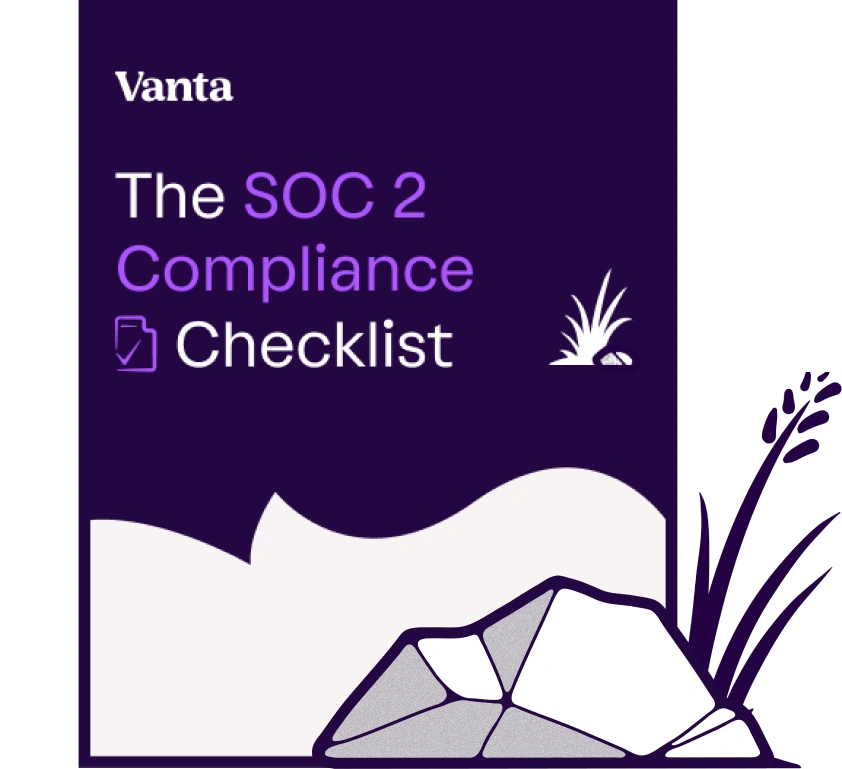




FEATURED VANTA RESOURCE
The ultimate guide to scaling your compliance program
Learn how to scale, manage, and optimize alongside your business goals.
















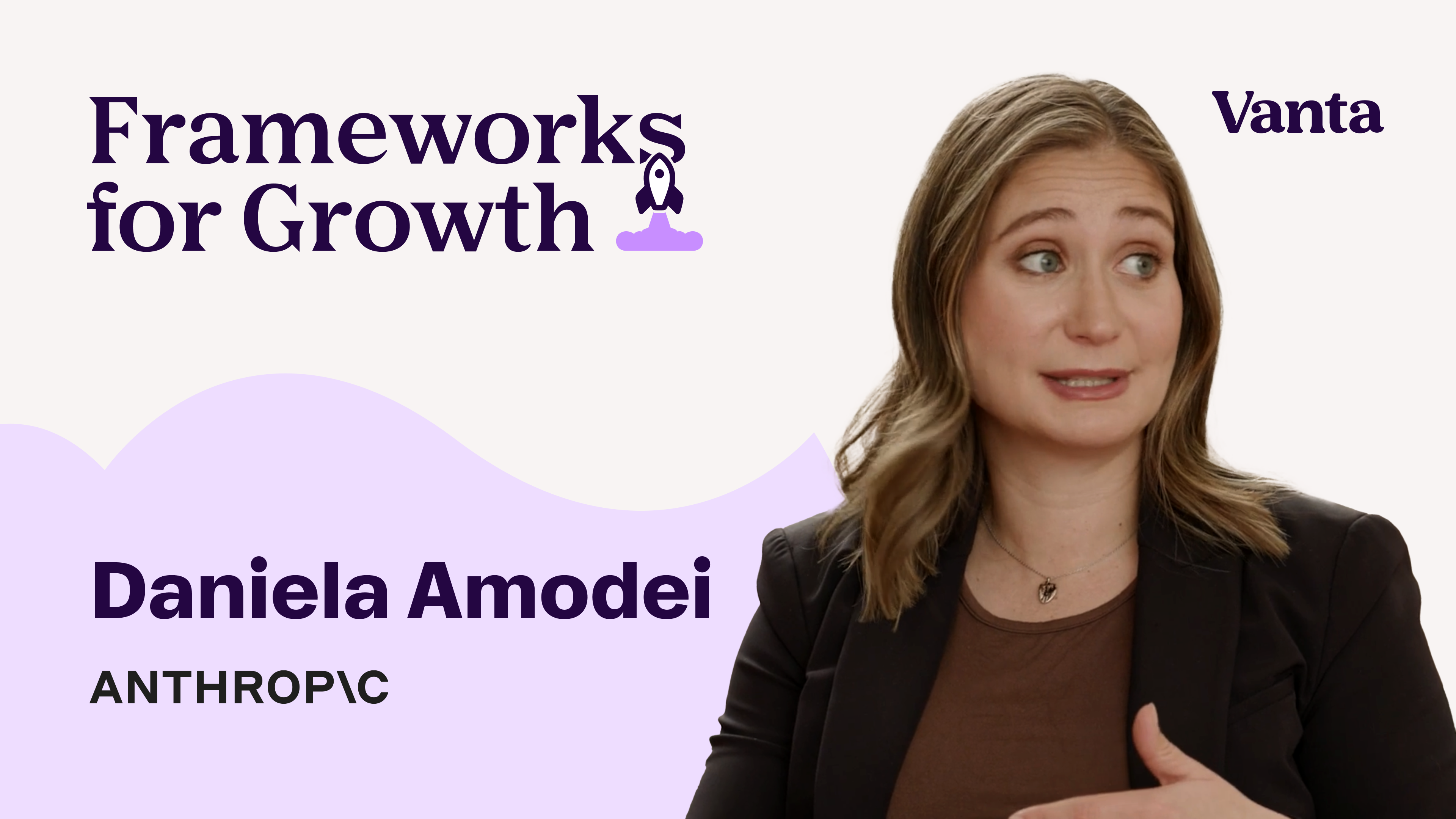
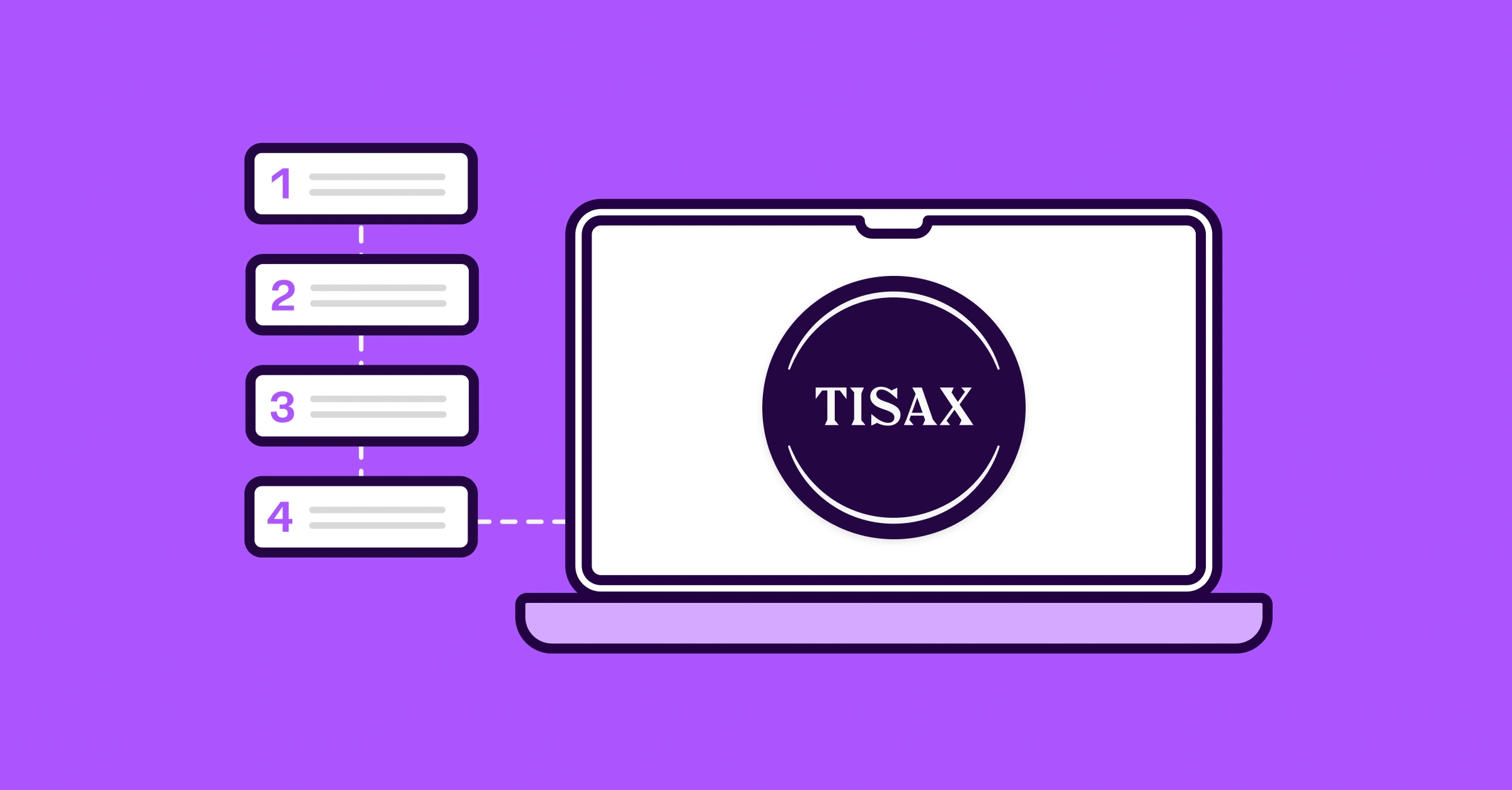
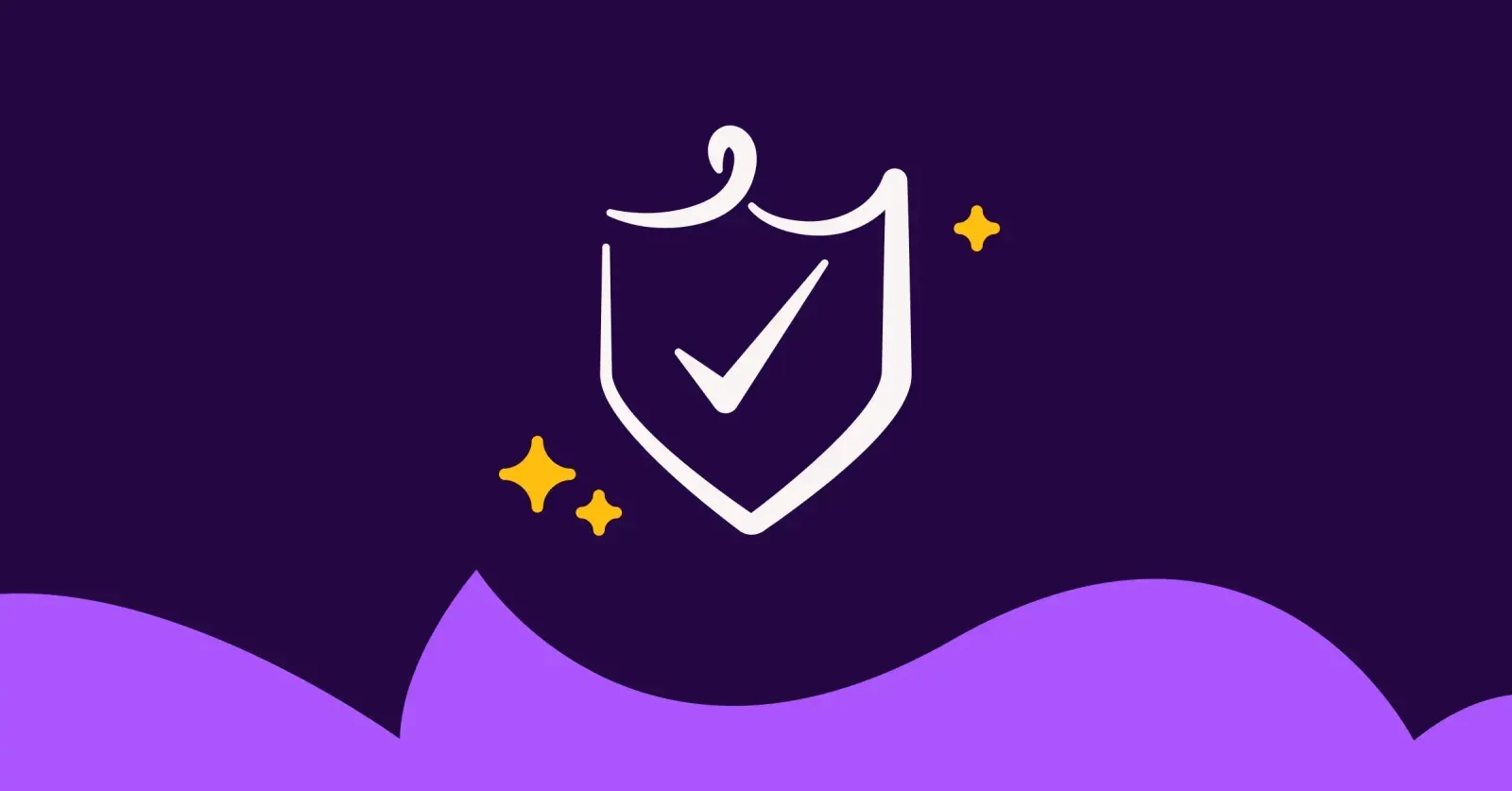
.png)
.png)
.png)

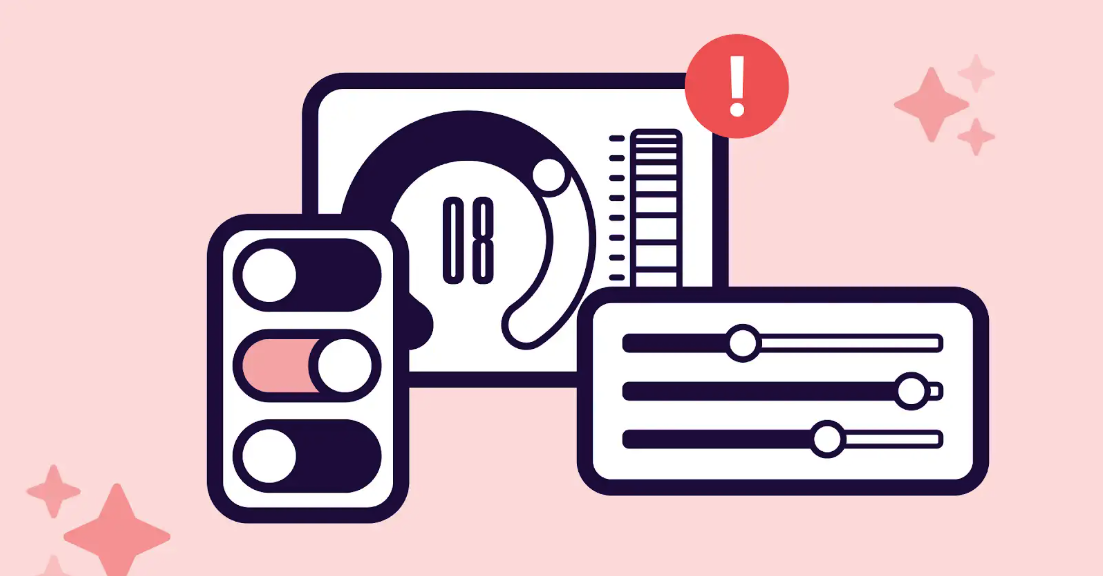
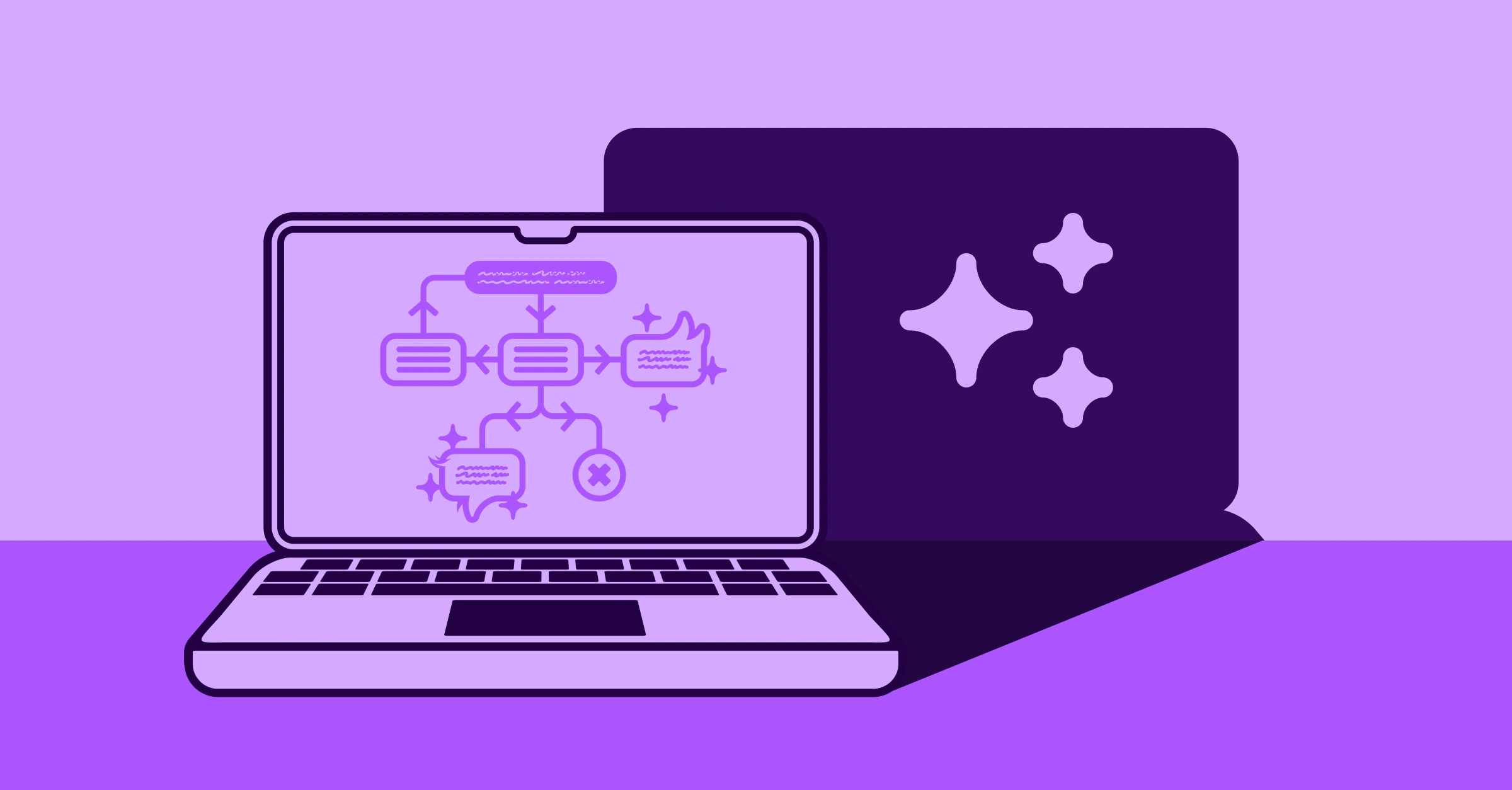


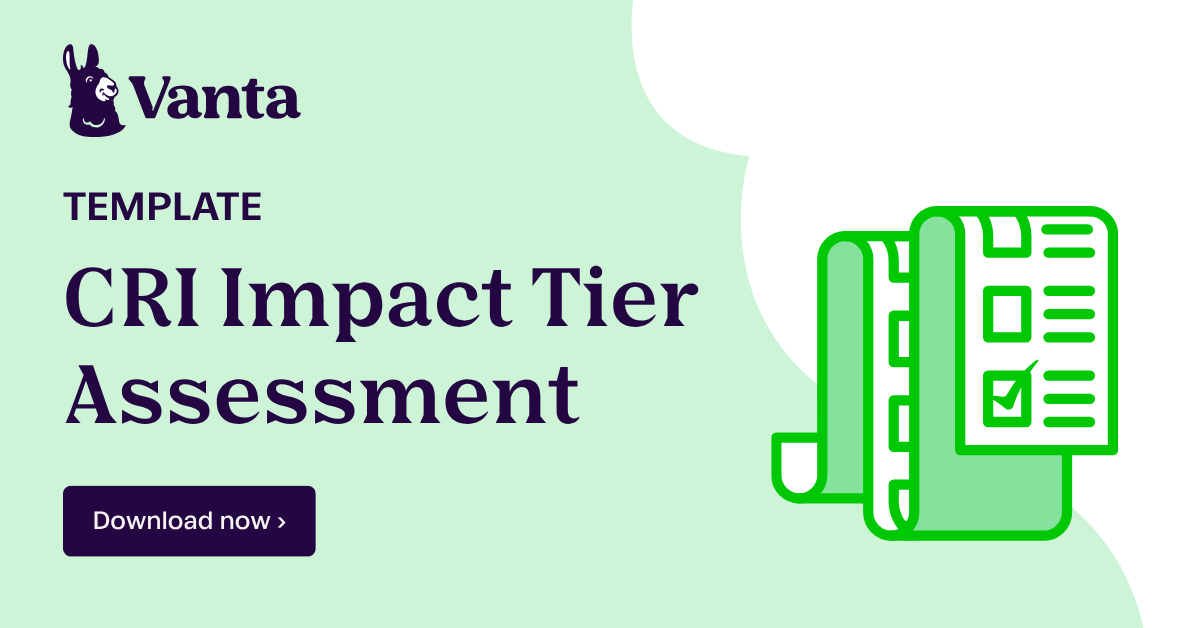
.svg)
.svg)


